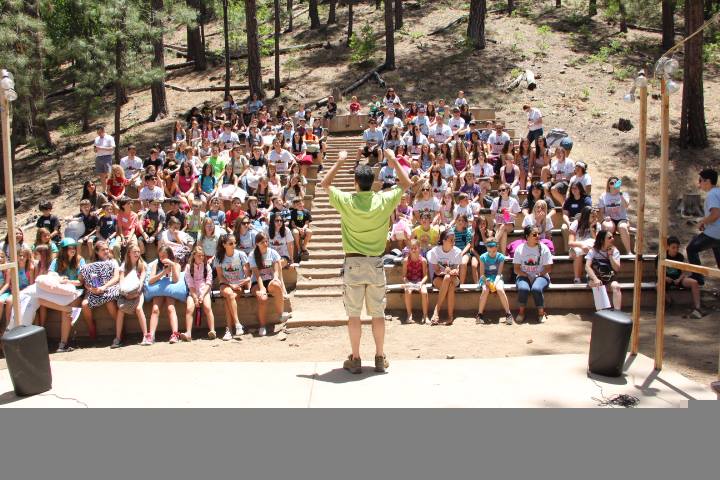Are You a Perry, Michael, Leslie or Liz? Take this quiz I made to see what type of manager you are! How do you deal with problems? How do you lead people? Which NBC comedy character are you the most like?
So now you know what type of manager you are. Everything’s fixed, right? Well…
I first observed the difficulty of being a manager when I was a young counselor at camp. Someone who I had known pretty well and connected with was suddenly on camp leadership– and they seemed like a totally different person. Never had time to talk with people. Always busy with something. Disengaged, disconnected, just different. Then, years later, I moved onto camp leadership. And I understood.
When you are a manager (whether or not that’s your title, if you lead people, projects, or events, you are a manager of some sort), you have a totally different awareness of things, set of responsibilities, expectations, worries, hopes, struggles, etc. And everyone handles them differently. I tried to still be present with the campers, take time to get to know the counselors, and not get too wrapped up in all that had to get done. But sometimes it was just plain impossible.
When I was younger, I dreamed of being camp director. Then I saw all that the job entailed. And I knew it was not for me. Of the things I loved about camp– working with campers, leading devotions, creating environments, teaching, playing games, building relationships, leading music, helping kids feel welcome, all the daily camp activities– only a handful transferred over to full time camp leadership. I truly respect those who work in that arena, because it’s a lot of paperwork, recruiting, training, safety inspections, dealing with issues, scheduling groups, budgeting, communicating, and all the things that keep camp running and growing. I don’t have the passion for that work– at least not now. Perhaps things will change and I’ll end up back in camp ministry. But I’ve realized that interests, passions, gifts, abilities, opportunities, finances, and callings don’t always come together just as you would like.
I found this image on a post appropriately called, “A Load of Malarkey” (though they did not create it). Instead of paraphrasing what the author wrote, I’ll simply quote you a piece:
It seems like a great idea. You’re asking people to look at their lives and think about how to bring different pieces together, to find meaning, to help others, to think about what they do well. It sounds great.
The problem is that this graph is not achievable for a huge number of people. Getting paid to do something is outside your control to a large extent. Your passion may be something that simply isn’t marketable or easily monetized. And your gifts may not include monetizing your passions. In fact, monetizing one’s passions has a cost for that passion for many people, a cost that some people are uncomfortable paying. So where are you stuck then? Supposedly without a purpose.
If we could all throw a dart in the place on the graph where we’d love to spend the majority of our days, it would be dead center. And since we spend a majority of our time doing work, surely your job must be right in your purpose? But sometimes things don’t go that way. Especially when it comes to leadership and management.
 Michael Scott from “The Office” was a great salesman (somehow…I know, it’s hard to believe…) but he is a pretty terrible manager. Fortunately he has a great team who known him and work around his eccentricities, but if anyone from corporate observed what a typical week looked like at Dunder Mifflin Scranton, there’s no way he’d keep his job. He loved selling. He was amazing at selling. And thus, he got promoted to managing the branch and leading all the other salesman. But certain skills in one line of work don’t always transfer to leadership skills in that line of work.
Michael Scott from “The Office” was a great salesman (somehow…I know, it’s hard to believe…) but he is a pretty terrible manager. Fortunately he has a great team who known him and work around his eccentricities, but if anyone from corporate observed what a typical week looked like at Dunder Mifflin Scranton, there’s no way he’d keep his job. He loved selling. He was amazing at selling. And thus, he got promoted to managing the branch and leading all the other salesman. But certain skills in one line of work don’t always transfer to leadership skills in that line of work.
Perry Cox from “Scrubs” was, somehow, a great doctor and teacher. Though he terrified and annoyed and teased his patients and interns and resident, he still fixed and inspired and trained them well. So when the opportunity opened for him to become Chief of Medicine and enact some change, he stepped up. But he found out that the job was not for him– paperwork, meetings, rules, forms, administration, etc. He was stuck in his office and didn’t get to do what he loved best– making rounds, belittling residents, solving medical problems. Sometimes your passion for a specific job can transcend that job. If you care enough about the organization, the work, and the people you serve, you can do work that drives you crazy, because you know you’re making a difference. But sometimes that passion can only carry you so far.
 Liz Lemon from “30 Rock” was an actress, a comedian, a writer– plus she used to run the light board. She pushed and worked hard and finally achieved a dream– her own TV show, “The Girlie Show.” She made it big. But then along came a new boss, a new star, and a million other problems. She has a skill in producing and running a writing team, that’s for sure. But in many ways, I’m sure she would prefer to have more competent writers, less problematic actors, a less frustrating boss and a more responsive audience. She didn’t know what she was signing up for when she started pursuing this career, yet she has the drive she needs to finally have it all– or at least try again and again and again.
Liz Lemon from “30 Rock” was an actress, a comedian, a writer– plus she used to run the light board. She pushed and worked hard and finally achieved a dream– her own TV show, “The Girlie Show.” She made it big. But then along came a new boss, a new star, and a million other problems. She has a skill in producing and running a writing team, that’s for sure. But in many ways, I’m sure she would prefer to have more competent writers, less problematic actors, a less frustrating boss and a more responsive audience. She didn’t know what she was signing up for when she started pursuing this career, yet she has the drive she needs to finally have it all– or at least try again and again and again.
 Leslie Knope from “Parks and Recreation” is a busy beaver, an energizer bunny, a chicken running around with its head, and a hundred other animal metaphors. She got involved in Pawnee Parks and Recreation because she loved government, loved serving others, and loved parks. And she’s happy to do whatever she can to help. For a time that meant being hands on, but eventually she has to decide whether she should move into higher leadership. City Council? Regional Director of National Park Service Midwest Region? Indiana Governor? President of the United States? All of those opportunities come with their own pros and cons, but how do you decide when it’s time to move into something else and when it’s time to stay where you are?
Leslie Knope from “Parks and Recreation” is a busy beaver, an energizer bunny, a chicken running around with its head, and a hundred other animal metaphors. She got involved in Pawnee Parks and Recreation because she loved government, loved serving others, and loved parks. And she’s happy to do whatever she can to help. For a time that meant being hands on, but eventually she has to decide whether she should move into higher leadership. City Council? Regional Director of National Park Service Midwest Region? Indiana Governor? President of the United States? All of those opportunities come with their own pros and cons, but how do you decide when it’s time to move into something else and when it’s time to stay where you are?
That there is the question of “The Manager.” Many don’t actually set out to become a manager/director/coordinator/etc. It is simply a step up from simply being a volunteer, employee or more specific job. You get to lead others, organize projects, coordinate initiatives, what’s not to like? It just depends on your personality.
 Do you need to be on the front line, actively engaging with the people you are helping and the work your team/group or organization or business is doing? You are a Perry.
Do you need to be on the front line, actively engaging with the people you are helping and the work your team/group or organization or business is doing? You are a Perry.
 Or would you rather lead a team, with everyone bringing their own talents and gifts to the table, helping with the things you like, but avoiding the messy stuff you hate? You are a Michael.
Or would you rather lead a team, with everyone bringing their own talents and gifts to the table, helping with the things you like, but avoiding the messy stuff you hate? You are a Michael.
 Do you love motivating people, creating action plans, and arranging projects– but also love doing a million little tasks and being active at all levels of your line of work? You are a Leslie.
Do you love motivating people, creating action plans, and arranging projects– but also love doing a million little tasks and being active at all levels of your line of work? You are a Leslie.
 Do you love your work and the things you make so much that you can tackle big-picture issues and make sure everyone is doing their job– and do it for them if need be? You are a Liz.
Do you love your work and the things you make so much that you can tackle big-picture issues and make sure everyone is doing their job– and do it for them if need be? You are a Liz.
There is certainly overlap, but the lesson here is that we are all different. Some people love being “the manager” and some people can’t stand it. Some days I love managing people and some days I can’t the work. But ultimately, I know that my life, my identity is bigger than my job title.
Once again, I’ll quote from “A Load of Malarkey”:
I think this graph is a trap that we build for people in our society. We tell each other that the only path to meaningful lives is to find a career that will do everything for us, a career that we love, that gives us purpose and a comfortable life. We tell ourselves that unless we are paid in money for something, that is has no value. Since others are who pays us, we allow others to determine the value of our work on every level. For a few people, life does work out that way. But for most people I know, they may like their jobs and even find some level of purpose in them, but it’s through their creating unpaid art, coaching their kids’ sports team, passionately discussing books with friends, volunteering at a local charity, sustaining their church or other such work that they actually find a huge part of their fulfillment. The job is what lets them live comfortably and may even be enjoyable work, but it isn’t what brings everyone purpose. That’s the “other things.” And this graph devalues them. It says they’re not important to the real picture.
 If you can get a smartphone that does a million things for you– flashlight, camera, music player, alarm clock, GPS, web browser, phone, etc.– you’ve got a neat tool. But it’s okay if you don’t have a smartphone, or if you rely on other tools in addition to your smartphone. Yes, you can find almost everything you could need in a smartphone– but you can also find a better flashlight at Walmart, a better GPS at Best Buy, a better web browser on your laptop, etc. Sometimes finding everything in one place doesn’t really satisfy you.
If you can get a smartphone that does a million things for you– flashlight, camera, music player, alarm clock, GPS, web browser, phone, etc.– you’ve got a neat tool. But it’s okay if you don’t have a smartphone, or if you rely on other tools in addition to your smartphone. Yes, you can find almost everything you could need in a smartphone– but you can also find a better flashlight at Walmart, a better GPS at Best Buy, a better web browser on your laptop, etc. Sometimes finding everything in one place doesn’t really satisfy you.
 The same is true for that diagram. Yes it would be great if your career could be the culmination of what you love doing, what you’re skilled at, what the world needs, what will make you money, etc. But sometimes you find a job that pays well where you can do some good– and you don’t love it every day. Or you find a job where you can use your experience and talents, but you may not be paid very much. Or you find a job you love and you have to work another job to keep working at the first. Life has many paths. And everyone is different.
The same is true for that diagram. Yes it would be great if your career could be the culmination of what you love doing, what you’re skilled at, what the world needs, what will make you money, etc. But sometimes you find a job that pays well where you can do some good– and you don’t love it every day. Or you find a job where you can use your experience and talents, but you may not be paid very much. Or you find a job you love and you have to work another job to keep working at the first. Life has many paths. And everyone is different.
 So wherever you are, know that your purpose is more than just your job. It involves your job, but also your relationships, your hobbies, your family, your favorite food, your hangups, your memories, your hopes, and so much more. Your purpose is to be you. Exactly as God made you. Your work? Well, that is for each person to discover as they go through life. It might change. It might be hard for seasons and wonderful for years. You might have to be “the manager” or the coat room attendant and you might love it or hate it, but you do your best. And see how you can follow the two greatest commandments– Love God and Love Others– right where you are. Think you can manage that? 🙂
So wherever you are, know that your purpose is more than just your job. It involves your job, but also your relationships, your hobbies, your family, your favorite food, your hangups, your memories, your hopes, and so much more. Your purpose is to be you. Exactly as God made you. Your work? Well, that is for each person to discover as they go through life. It might change. It might be hard for seasons and wonderful for years. You might have to be “the manager” or the coat room attendant and you might love it or hate it, but you do your best. And see how you can follow the two greatest commandments– Love God and Love Others– right where you are. Think you can manage that? 🙂




